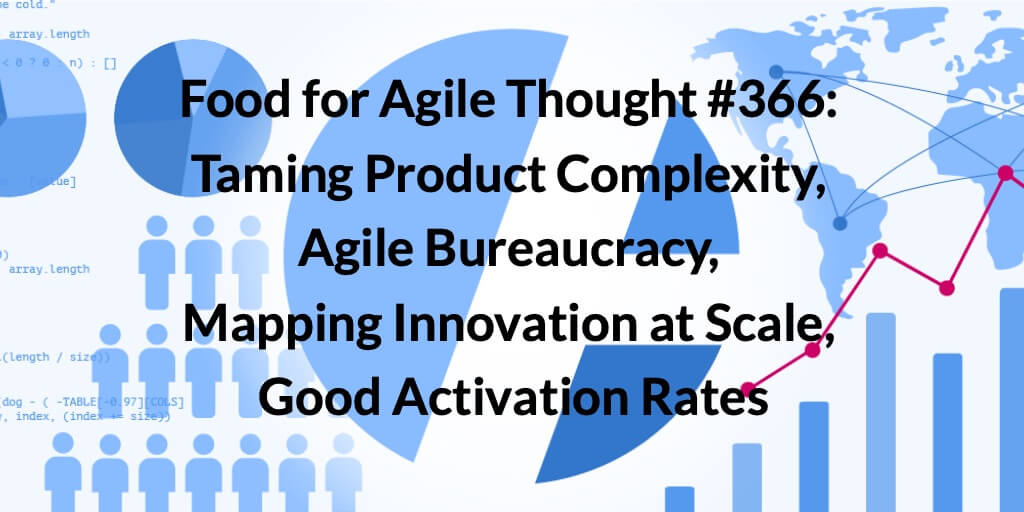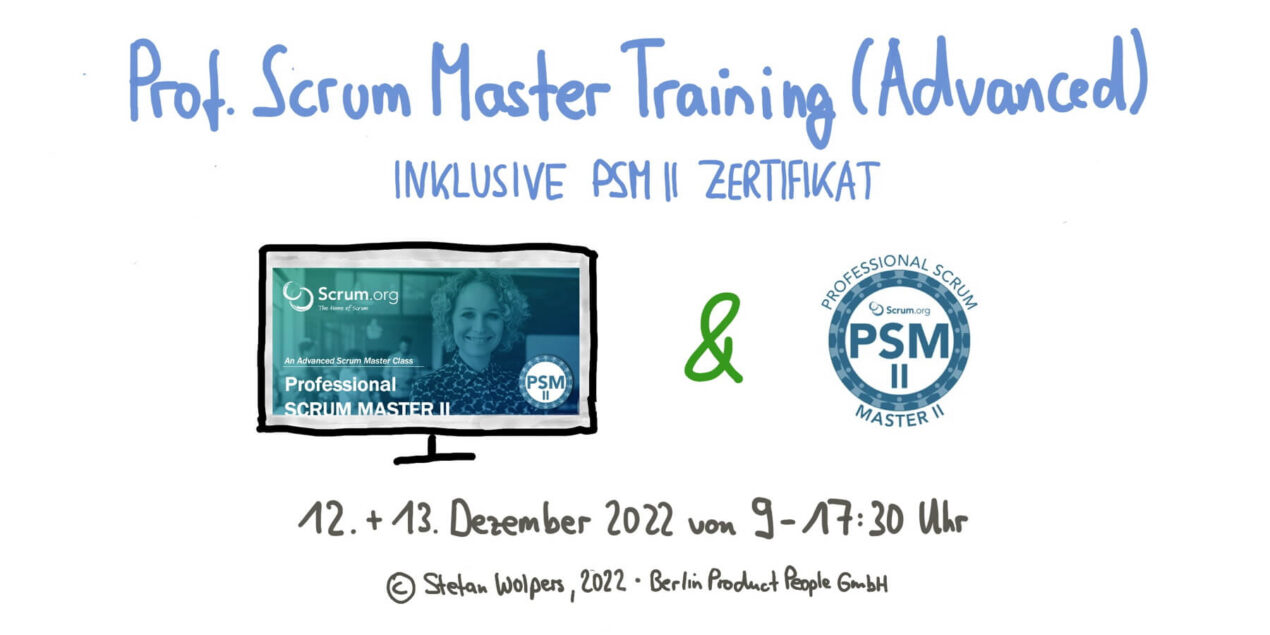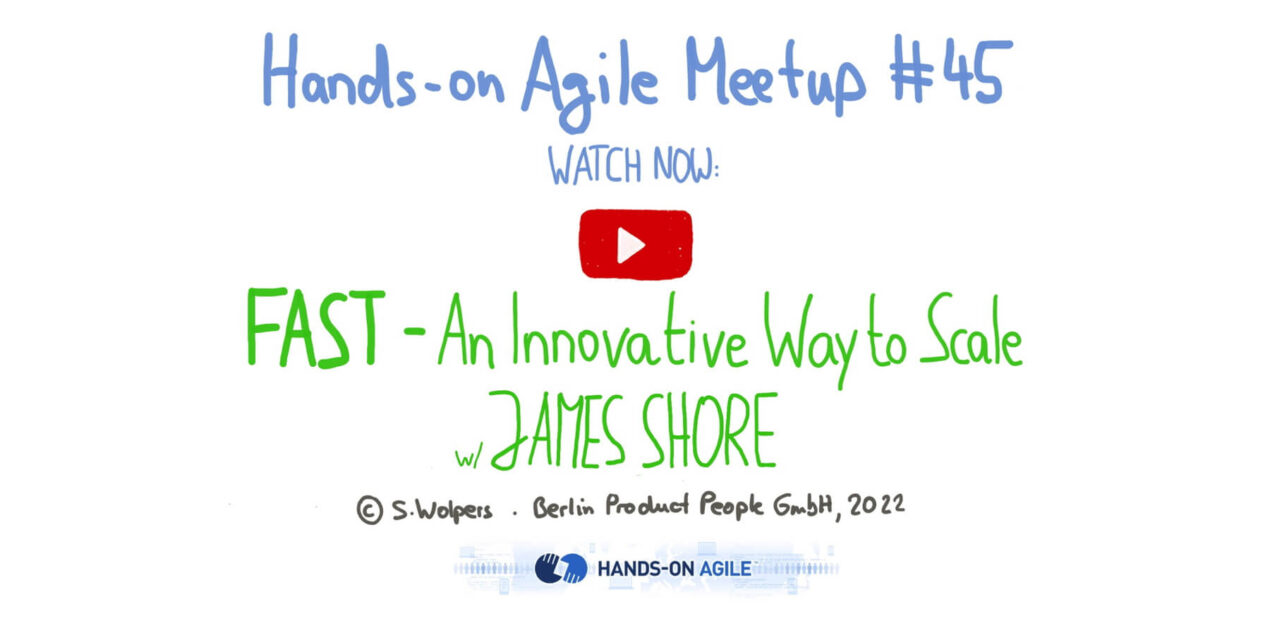TL; DR: Taming Complexity — Food for Agile Thought #366
Welcome to the 366th edition of the Food for Agile Thought newsletter, shared with 36,188 peers. This week, we identify five practical ways of taming complexity to avoid feature creep and pushing away users and share “examples of organizations that operate beyond the traditional set of agile practices and have been able to break down the bureaucratic hierarchy by adopting radical forms of consent, participation, and self-management.” Also, we have a look at building high-trust teams at Shopify in a remote working world, and suggest shifting “from leading with goals to leading with questions,” referring to Nobel laureate Richard Feynman.
Then, we point out that many companies may run experiments to test product ideas with users and customers; however, they fail to follow up with meaningful action. Following this example of failing innovation, we share lessons learned from a 100-plus-year-old company that is still a market leader, trying to innovate itself out of decline. Moreover, we appreciate a global benchmarking survey on activation rates with participants from Expedia, Grammarly, Canva, Duolingo, and others and examine the Lean UX Canvas in detail, pointing to shortcomings such as the need for a root cause analysis or mapping dependencies.
Finally, we share a primer on why “interviewing stakeholders provides helpful information about their context, [allowing] us to identify business goals they are concerned with, and increases their support.” And we close this edition of the newsletter with a video that explains what it takes to successfully use OKRs and points to common anti-patterns in their application, from tying them to compensation to excessive use.

Did you miss the previous Food for Agile Thought’s issue 365?
🗞 Shall I notify you about articles like this one? Awesome! You can sign up here for the ‘Food for Agile Thought’ newsletter and join 36,000-plus subscribers.
🎓 Join Stefan in one of his upcoming Professional Scrum training classes!
🖥 💯 🇬🇧 Advanced Professional Scrum Master Online Training w/ PSM II Certificate — December 12-13, 2022.

📅 💯 🇬🇧 November 3, 2022: Join 125-plus peers at the 47th Hands-on Agile Meetup: Evidence-guided Development Using the Confidence Meter with Itamar Gilad.
🏆 The Tip of the Week: Taming Complexity
: Five Ways to Address Complexity In Your Product
Following on Scott Belsky’s notion that users flock to simple products, Casey Winters sketches five practical ways of taming complexity to avoid feature creep and pushing away users.
There is no easy way out of the product lifecycle. Like scaling a culture, it requires a lot of intentionality to scale a product without losing the simplicity that drove so many people to it in the first place.
➿ Agile & Scrum
(via YouTube): 📺 We're stuck in agile bureaucracy – but there is hope!
Jurriaan Kamer shares “examples of organizations that operate beyond the traditional set of agile practices and have been able to break down the bureaucratic hierarchy by adopting radical forms of consent, participation, and self-management.”
and (via InfoQ): Building High-Trust and High-Performing Teams at Shopify in a Remote World
Jesse McGinnis shared lessons on building high-trust teams at Shopify in a remote working world.
: How to Thrive in a World of Uncertainty
Tiago Forte claims that “the future has become so uncertain that goals are now obsolete” and suggests shifting “from leading with goals to leading with questions,” referring to Nobel laureate Richard Feynman.
🎓 🖥 💯 🇬🇧 Advanced Professional Scrum Master Online Training w/ PSM II Certificate — December 12-13, 2022
Discover Scrum’s four success principles in this guaranteed official Scrum.org Advanced Scrum Master training class including the industry-recognized PSM II certification. The PSM II training class is designed as a live virtual class and will be offered in English.
Enjoy the benefits of a compact immersive class with like-minded agile peers from 09:00 – 17:30 o’clock CET.

Learn more: 🖥 💯 🇬🇧 Advanced Professional Scrum Master Online Training w/ PSM II Certificate — December 12-13, 2022.
“Very hands-on class with lots of concrete takeaways to help in real world scenarios. Reinforced practices and highlighted things that helped in passing the PSM II exam but that was merely a bonus as the content of the class is so useful – certifications or not. Stefan Wolpers is an excellent trainer with broad practical and theoretical knowledge on the subject and his classes seem to have very good working atmosphere (this was a second class by him that I have taken).”
(Link.)
👉 From time to time, we can offer last-minute seats for training classes at cost to individuals who do not have access to a corporate training budget. If you like to be notified about these opportunities, please register here.
🎯 Product
: The Build-Measure-LooksGood! Loop
Itamar Gilad shares his observation that many companies may run experiments to test product ideas with users and customers; however, they fail to follow up with meaningful action. Learn more from Itamar on how to avoid this failure.
: A Simple Map for Innovation at Scale
Steve Blank shares lessons learned from a 100-plus year-old company that is still a market leader, trying to innovate itself out of decline.
(via Crisp): 📺 An intro to Holistic Product Discovery
Marcus Castenfors introduces his framework, sharing background information from product discovery first principles to a proven risk mapping technique.
📺 FAST Scaling: An Innovative Way to Scale Agile with James Shore — Hands-on Agile #45
In this energizing 45th Hands-on Agile session, James Shore shared his experiences with scaling “agile:” first with traditional approaches and, more recently, with FAST scaling. Learn in this deep-dive what works, what doesn’t, and how you can try FAST in your organization.

📺 Watch the video now: James Shore: FAST: An Innovative Way to Scale — Hands-on Agile #45.
🛠 Concepts, Tools & Measuring
: 📈 What is a good activation rate
Lenny Rachitsky and Yuriy Timen ran a global benchmarking survey on activation rates with participants from Expedia, Grammarly, Canva, Duolingo, and others.
(via Medium): Critical Thinking About The ‘Lean UX’ Canvas
Debbie Levitt examines the Lean UX Canvas in detail, pointing to shortcomings such as the lack of a root cause analysis or mapping dependencies.
(via Nielsen Norman Group): Stakeholder Interviews 101
Sarah Gibbons shares a primer on why “interviewing stakeholders provides helpful information about their context, allows us to identify business goals they are concerned with, and increases their support.”
🎶 Encore
(via Mind The Product): 📺 The good, bad, and ugly of OKRs
In this video, Jenny Herald explains what it takes to successfully use OKRs and points to common anti-patterns in their application, from tying them to compensation to excessive use.
📅 Scrum Training & Event Schedule
You can secure your seat for Scrum training classes, workshops, and meetups directly by following the corresponding link in the table below:
See all upcoming classes here.

You can book your seat for the training directly by following the corresponding links to the ticket shop. If the procurement process of your organization requires a different purchasing process, please contact Berlin Product People GmbH directly.
📺 Join 4,000-plus Agile Peers on Youtube
Now available on the Age-of-Product Youtube channel to improve learning, for example, about fixing toxic cultures:
- 🆕 Hands-on Agile 45: FAST: An Innovative Way to Scale with James Shore.
- 🆕 Hands-on Agile 44: Honey, I Shrunk the Backlog with Allan Kelly.
- Hands-on Agile 43: Outcome-Based Product Planning with Jeff Gothelf.
- Hands-on Agile 42: Lean Roadmapping and OKRs with Janna Bastow.
- Hands-on Agile 38: The Product Owner with Roman Pichler.

✋ Do Not Miss Out and Learn more about Taming Complexity — Join the 12,000-plus Strong ‘Hands-on Agile’ Slack Community
I invite you to join the “Hands-on Agile” Slack Community and enjoy the benefits of a fast-growing, vibrant community of agile practitioners from around the world.

If you like to join all you have to do now is provide your credentials via this Google form, and I will sign you up. By the way, it’s free.
Help your team with taming complexity by pointing them to the free Scrum Anti-Patterns Guide:


